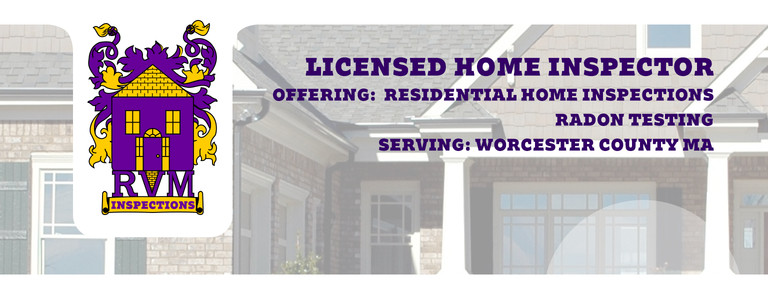 Selling a home can be both exciting and nerve-wracking. One of the crucial steps in the process is getting a home inspection. While most buyers will arrange their own inspection, many sellers choose to get a pre-listing home inspection to identify potential issues early, fix them beforehand, and ultimately speed up the sale. But what should you ask the home inspector to make sure you’re fully prepared and informed?
Selling a home can be both exciting and nerve-wracking. One of the crucial steps in the process is getting a home inspection. While most buyers will arrange their own inspection, many sellers choose to get a pre-listing home inspection to identify potential issues early, fix them beforehand, and ultimately speed up the sale. But what should you ask the home inspector to make sure you’re fully prepared and informed?
Here’s a guide to the key questions every home seller should ask their home inspector before putting the property on the market.
1. What Does the Inspection Cover?
Not all home inspections are created equal. It’s important to understand the scope of the inspection so you know what areas and systems will be evaluated. Ask your inspector to clarify:
Which parts of the home will be examined (e.g., roof, foundation, electrical, plumbing, HVAC)?
Are there any exclusions or limitations to the inspection?
Will the inspection include appliances, garage door openers, or outbuildings?
Knowing this upfront can help you manage expectations and decide if you need additional specialized inspections, like pest or mold assessments.
2. How Thorough is the Inspection?
Some inspectors do a quick walkthrough, while others dig deep into every nook and cranny. Ask about their process:
How much time will you spend on the inspection?
Do you use any special tools or technology (like moisture meters or thermal cameras)?
Will you inspect the attic, crawl spaces, and basement thoroughly?
A detailed inspection helps uncover hidden problems that could turn into deal breakers later.
3. What Are the Most Common Issues You Find in Homes Like Mine?
Your home’s age, location, and style can influence the types of issues that are common. By asking this question, you gain insight into potential red flags specific to your property. This can help you decide what repairs or disclosures might be necessary before listing.
4. How Do You Report Your Findings?
The format and detail of the inspection report can vary. Some inspectors provide a simple checklist, while others deliver a comprehensive, photo-rich report. Ask:
When will I receive the report?
Will it include photos and detailed descriptions of issues?
Is the report easy to understand?
A clear, well-organized report is vital for prioritizing repairs and sharing with potential buyers.
5. Can You Provide Estimates on Repair Costs?
While home inspectors don’t typically act as contractors, many have experience estimating repair costs or can guide you to trusted professionals. Ask if they can:
Give you a ballpark figure on major repairs
Recommend contractors or specialists for further evaluation
Having an idea of repair costs upfront helps you decide whether to fix issues or negotiate with buyers.
6. How Can I Prepare My Home for the Inspection?
A smooth inspection can save time and money. Your inspector can advise you on:
What to do before they arrive (e.g., clear access to crawl spaces, turn on utilities)
Areas that often cause trouble if neglected (e.g., gutters, HVAC filters)
Any documents or warranties you should have ready
Proper preparation ensures the inspection is as efficient and thorough as possible.
7. Should I Be Present During the Inspection?
Many sellers find it helpful to walk through the home with the inspector. Ask about their policy and if they recommend being there to:
Understand issues firsthand
Ask questions in real-time
Get maintenance tips to share with buyers
Being present can make you feel more confident and proactive in addressing concerns.
8. What Are the Biggest Red Flags Buyers Should Know About?
Understanding potential deal breakers helps you manage expectations and disclosure requirements. Your inspector can point out:
Safety hazards (e.g., faulty wiring, mold, structural damage)
Issues that may cause lenders or insurers to hesitate
Problems that could affect home value or marketability
Knowing these ahead of time can prevent surprises during negotiations.
9. Can You Help Me Prioritize Repairs?
Not all issues uncovered in an inspection require immediate attention. Ask your inspector to:
Identify urgent repairs versus cosmetic fixes
Suggest which improvements will most increase your home’s value
Recommend what can be disclosed without repairs
This guidance allows you to budget wisely and focus on what matters most to buyers.
10. How Long Is the Inspection Report Valid?
Market conditions and home inspections standards can change. Ask how long the report remains relevant, especially if your home doesn’t sell quickly. This can affect whether you need a re-inspection later in the selling process.
A home inspection can be one of the best tools for sellers to present their property in the best light. By asking the right questions, you not only get a clearer picture of your home’s condition but also gain peace of mind during the selling journey. A proactive approach helps build trust with buyers and can lead to a faster, smoother sale.
If you’re preparing to sell your home, schedule a reputable home inspector and be ready with these questions. Your future self, and your buyer, will thank you.








